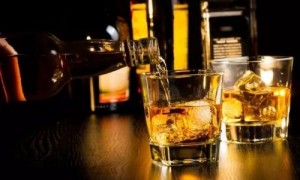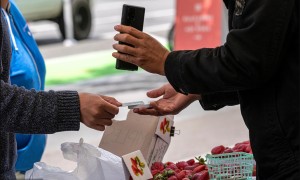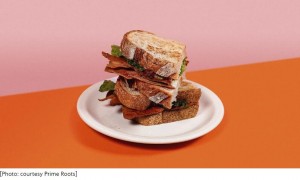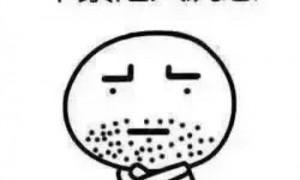Fidel Castro lived like a king with his own private yacht, a luxury Caribbean island getaway complete with dolphins and a turtle farm, and travelled with two personal blood donors, a new book claims.
In La Vie Cachée de Fidel Castro (Fidel Castro's Hidden Life), former bodyguard Juan Reinaldo Sánchez, a member of Castro's elite inner circle, says the Cuban leader ran the country as his personal fiefdom like a cross between a medieval overlord and Louis XV.
Sánchez, who was part of Castro's praetorian guard for 17 years, describes a charismatic and intelligent but manipulative, cold-blooded, egocentric Castro prone to foot-stamping temper tantrums. He claims the vast majority of Cubans were unaware their leader enjoyed a lifestyle beyond the dreams of many Cubans and at odds with the sacrifices he demanded of them.
"Contrary to what he has always said, Fidel has never renounced capitalist comforts or chosen to live in austerity. Au contraire, his mode de vie is that of a capitalist without any kind of limit," he writes. "He has never considered that he is obliged by his speech to follow the austere lifestyle of a good revolutionary."
Sánchez claims he suffered Castro's ruthlessness first hand when he fell out of favour, was branded a traitor, "thrown in jail like a dog", tortured and left in a cockroach infested cell, after asking to retire. Released from prison, Sánchez followed the well-worn route of Cuban exiles to America in 2008. "Until the turn in the 1990s I'd never asked too many questions about the workings of the system … that's the problem with military people … as a good soldier, I did my job and my best and that was enough to make me happy," he writes.
The book, published on Wednesday, has been written with French journalist Axel Gyldén, a senior reporter at L'Express magazine. Gyldén admits Sánchez has a large axe to grind with Castro, but insists he has checked the Cuban's story.
"This is the first time someone from Castro's intimate circle, someone who was part of the system and a first-hand witness to these events, has spoken. It changes the image we have of Fidel Castro and not just how his lifestyle contradicts his words, but of Castro's psychology and motivations," Gyldén told the Guardian.
This is not the first time it has been claimed that Castro enjoys great wealth. In 2006 Forbes magazine listed the Cuban leader in its top 10 richest "Kings, Queens and Dictators", citing unnamed officials who claimed Castro had amassed a fortune by skimming profits from a network of state-owned companies. The Cuban leader vehemently denied the report.
Castro's long reign ended in 2006 when he was stricken with what was believed to be diverticulitis, an intestinal ailment, and handed power to his younger brother Raúl, who had served as defence minister. He officially ceded power to Raúl in 2008.
Fidel continued penning columns for the Communist party newspaper Granma but gradually vanished from public view, fuelling rumours he had died, only to surface for occasional, fleeting appearances. Raul has made cautious economic reforms but kept tight control.
Visitors such as Ignacio Ramonet, the French journalist who has interviewed Castro at length, have depicted an austere lifestyle of reading, exercise, simple meals and modest home comforts.
But Sánchez, now 65 and living in America, claims Castro enjoyed a private island – Cayo Piedra, south of the Bay of Pigs, scene of the failed CIA-sponsored invasion of 1961 – describing it as a "garden of Eden" where he entertained selected guests including the writer Gabríel Garcia Márquez, and enjoyed spear-fishing.
The former bodyguard says Castro sailed to the island on his luxury yacht, the Aquarama II, fitted out with rare Angolan wood and powered by four motors sent by the Soviet president Leonid Brezhnev.
"Castro would sit in his large black leather director's armchair ... a glass of Chivas Regal on the rocks (his favourite drink) in his hand," writes Sánchez.
Other presidential properties, he writes, included an "immense" estate in Havana complete with rooftop bowling alley, basketball court and fully equipped medical centre, and a luxury bungalow with private marina on the coast.
"Fidel Castro also let it be known and suggested that the revolution gave him no rest, no time for pleasure and that he ignored, indeed despised, the bourgeois concept of holidays. He lies," he adds.
Ann Louise Bardach, a veteran Cuba chronicler who has interviewed Castro, said that as a lifelong hypochondriac he enjoyed the best food and medical care but did not have a lavish lifestyle. He was born into money and went into politics for power, she said. "He didn't do it for the money. He's not swinging from the chandeliers."
His current home, just outside Havana, had four bedrooms and would in the west be considered middle or upper-middle class, she said. Focusing on any material advantage he may enjoy missed a larger point, said Bardach, author of Without Fidel: a death foretold in Miami, Havana and Washington. "He owns the island of Cuba. It's his personal fiefdom."
Sánchez says Castro's dolce vita was a "crazy privilege" while Cubans suffered serious hardship in the 1990s as the economy "collapsed like a house of cards" after the disintegration of the Soviet union and eastern bloc with which Havana had done almost 80% of its foreign business.
His compatriots, he says, were also unaware of their leader's complicated love life, his womanising and subsequent tribe of at least nine children, not least because Cuban media was forbidden to mention them.
Sánchez says for nearly two decades he saw more of Castro than his own family. "He was a god. I drank all his words, believed all he said, followed him everywhere and would have died for him," he writes.
He claims he finally realised that Castro considered Cuba "belonged" to him.
"He was its master in the manner of a 19th century landowner. For him wealth was above all an instrument of power, of political survival, of personal protection."
Recalling how Castro kept Angolan diamonds in a Cohiba cigar box, he writes: "Sometimes, Fidel had a little of the mentality of a pirate of the Caribbean."
据《卫报》报道,卡斯特罗前任保镖在其出版的新书中写道:菲德尔·卡斯特罗在一个奢侈的加勒比度假岛屿上过着如同国王一般的生活,他拥有自己的游艇,岛上有很多海豚和一个海龟养殖场。他常带着两位私人献血者一同出游。
Juan Reinaldo Sánchez在《菲德尔·卡斯特罗的隐秘生活》一书中写道,卡斯特罗把整个国家看做自己的领地,他本人更像是中世纪君主和路易十五的结合体。
Sánchez曾是卡斯特罗的贴身保镖的一员,这份工作他干了17年,他在书中描绘出一个具有超凡魅力与智慧,但控制欲过强,冷血,以自我为中心、易怒的人物形象。他说大部分古巴人都不知道他们的领导人过着很多人做梦都想象不到的生活,有时还会要求他们牺牲自己的利益。
“菲德尔的所作所为完全与他一贯的说法相悖。他从未放弃过资产阶级的舒适生活或者是选择朴素的生活。相反,他过的完全是资本主义式的生活,没有丝毫节制。”他在书中写道。“他完全没想过自己应该按照他的讲话中那样,过一个革命者该过的简朴生活。”
Sánchez称自己申请退休,却被归为叛徒,切切实实感受到了卡斯特罗的冷酷无情。“像只狗一样被送进监狱”,在一个满是蟑螂的牢房里备受折磨。出狱后,他走了一条古巴流放人员走的老路——于2008年逃往美国。“如果不是因为90年代出了事,我永远也不会质疑现在的体系,这就是当一个好的士兵要面临的问题,我尽力做好了本职工作,那就足以令我感到开心了。”
这本书5月14日正式出版,由法国《快讯》杂志资深记者阿克塞尔·格莱登执笔。格莱登承认Sánchez的确对卡斯特罗怀有很多个人情绪,但他也已经核实或古巴的有关史料。
“这是卡斯特罗的小圈子里,也是这整个体系里见证那些事情站出来发声的第一人。这完全改变了我们队菲德尔·卡斯特罗的既定印象,不仅仅是证明他的言行有多不一致,我们对他的心理和动机想法也产生了怀疑。”格莱登接受《卫报》访问时说道。
卡斯特罗拥有巨额财富这件事并不是第一次被提及。2006年福布斯排行榜就把卡斯特罗列为全世界10大最富有的“国王,王后和独裁者”之一,这出自一位未透漏姓名的官员的原话,他说卡斯特罗从国营公司系统中攫取利益,积攒了巨额财富。卡斯特罗本人则强烈否认这一说法。
2006年,卡斯特罗的长期统治终于结束,那时他换上了憩室炎——一种肠内疾病,将权力移交给了胞弟劳尔,之前他一直担任国防大臣。2008年,他正式将权力移交给劳尔。
菲德尔仍为共产党报纸Granma撰写专栏,但已经渐渐消失于公众视线之外,这使得他死亡的谣言甚嚣尘上,他只是偶尔短暂的在公众前露面。劳尔一直谨慎地进行着经济改革,但仍控制得很紧。
法国记者伊纳希欧·哈莫内曾长期采访卡斯特罗,在他笔下,卡斯特罗遵循着一种简朴的生活方式,包括读书,锻炼,简餐和朴素的家居。
但现年65岁,居住在美国的Sánchez坚称卡斯特罗有一座私人岛屿——位于猪湾以南的卡约·皮埃德拉,曾有人将这里形容为“伊甸园”。他在这里或是会见贵客,或是用鱼叉捕鱼.
他写道,总统的其它财产还包括哈瓦那的一处“占地面积巨大的”房产,房顶上有保龄球馆,还有篮球场,设施齐全的医疗中心。他还有一座奢侈的小屋,岸边就有私人船坞。
“菲德尔·卡斯特罗想让世人明白,他一直忙于革命,没有时间休息和享受,他一直忽视这一点,而实际上也是鄙视这种资产阶级的享受假期的思想。但他撒谎了。”他在书里补充道。
古巴资深记者安·路易斯·巴达克也曾采访过卡斯特罗,她说他的确享受着顶级的美食和医疗服务,但他的生活并不奢靡。他的家族本就富有,从政是因为权力,而不是因为钱财。
Sánchez还说,90年代,苏联解体,东欧集团瓦解,而古巴也失去了80%的对外贸易额,遭遇严重困难。此时卡斯特罗仍然过着奢侈的生活,这是一种“疯狂的特权”。而古巴人也没有注意到卡斯特罗复杂的感情生活,他好近女色,至少有9个孩子,而古巴媒体往往避谈这一点。
Sánchez回忆道,至少有20年,他跟卡斯特罗在一起的时间比跟自己家人在一起的时间还要多。“他就是神。我相信他说的一切,跟随他去各个地方,也愿意为他而死。”
但后来他才明白卡斯特罗一直认为古巴是“属于”他的。
“他就像19世纪的地主一样,认为财富是获得权力,在政治斗争中生存下来和进行自我保护的武器。”
最后他回想起卡斯特罗把安哥拉钻石放进高斯巴雪茄盒里的情景,写道:“有时,卡斯特罗还怀有跟加勒比海盗一样的心态。”







